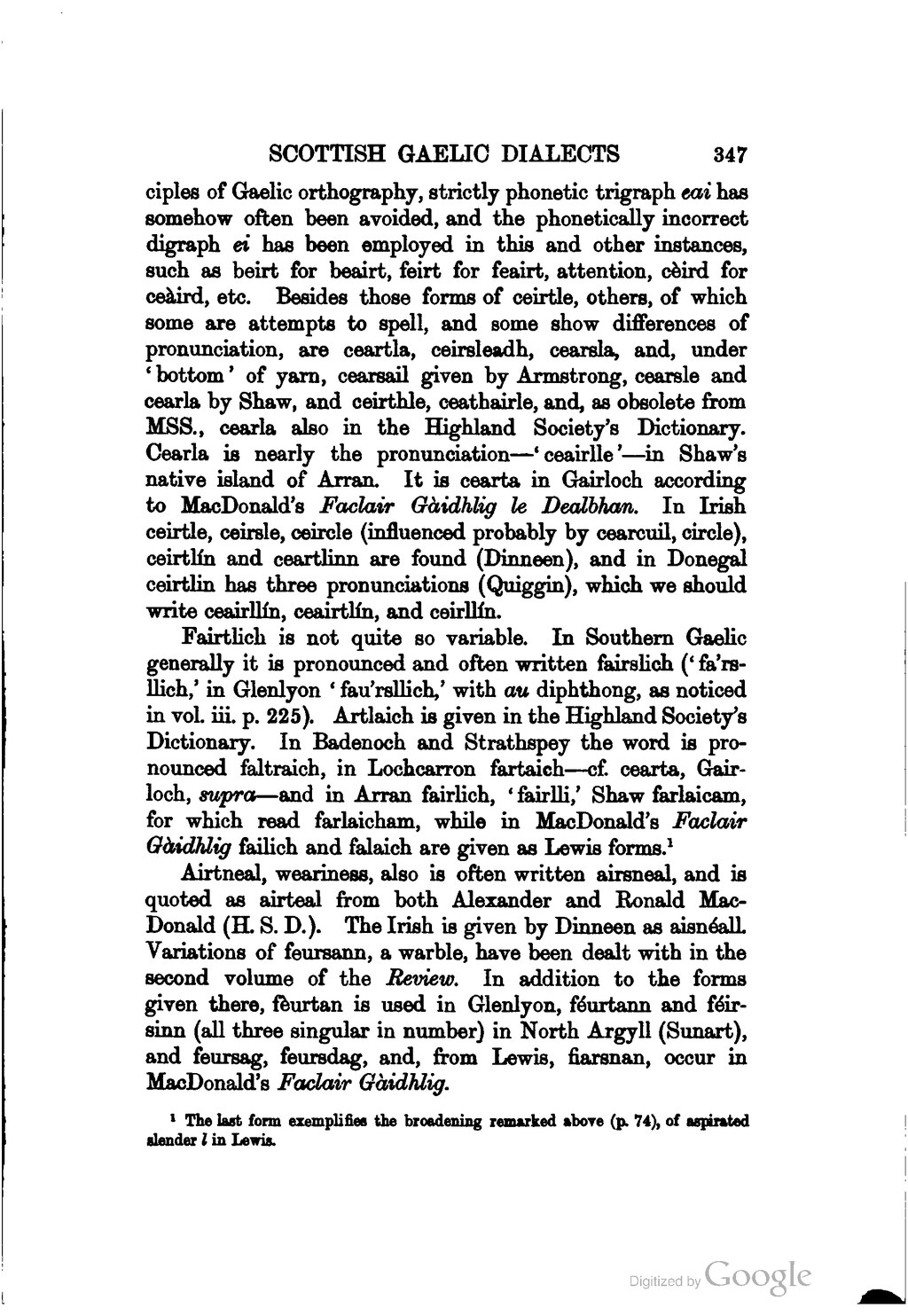ciples of Gaelic orthography, strictly phonetic trigraph eai has somehow often been avoided, and the phonetically incorrect digraph ei has been employed in this and other instances, such as beirt for beairt, feirt for feairt, attention, cèird for ceàird, etc. Besides those forms of ceirtle, others, of which some are attempts to spell, and some show differences of pronunciation, are ceartla, ceirsleadh, cearsla, and, under ‘bottom’ of yarn, cearsail given by Armstrong, cearsle and cearla by Shaw, and ceirthle, ceathairle, and, as obsolete from MSS., cearla also in the Highland Society’s Dictionary. Cearla is nearly the pronunciation—‘ceairlle’—in Shaw’s native island of Arran. It is cearta in Gairloch according to MacDonald’s Faclair Gàidhlig le Dealbhan. In Irish ceirtle, ceirsle, ceircle (influenced probably by cearcuil, circle), ceirtlín and ceartlinn are found (Dinneen), and in Donegal ceirtlin has three pronunciations (Quiggin), which we should write ceairllín, ceairtlín, and ceirllín.
Fairtlich is not quite so variable. In Southern Gaelic generally it is pronounced and often written fairslich (‘fa’rsllich,’ in Glenlyon ‘fau’rsllich,’ with au diphthong, as noticed in vol. iii. p. 225). Artlaich is given in the Highland Society’s Dictionary. In Badenoch and Strathspey the word is pronounced faltraich, in Lochcarron fartaich—cf. cearta, Gairloch, supra—and in Arran fairlich, ‘fairlli,’ Shaw farlaicam, for which read farlaicham, while in MacDonald’s Faclair Gàidhlig failich and falaich are given as Lewis forms.[1]
Airtneal, weariness, also is often written airsneal, and is quoted as airteal from both Alexander and Ronald MacDonald (H.S.D.). The Irish is given by Dinneen as aisnéall. Variations of feursann, a warble, have been dealt with in the second volume of the Review. In addition to the forms given there, fèurtan is used in Glenlyon, féurtann and féirsinn (all three singular in number) in North Argyll (Sunart), and feursag, feursdag, and, from Lewis, fiarsnan, occur in MacDonald’s Faclair Gàidhlig.
